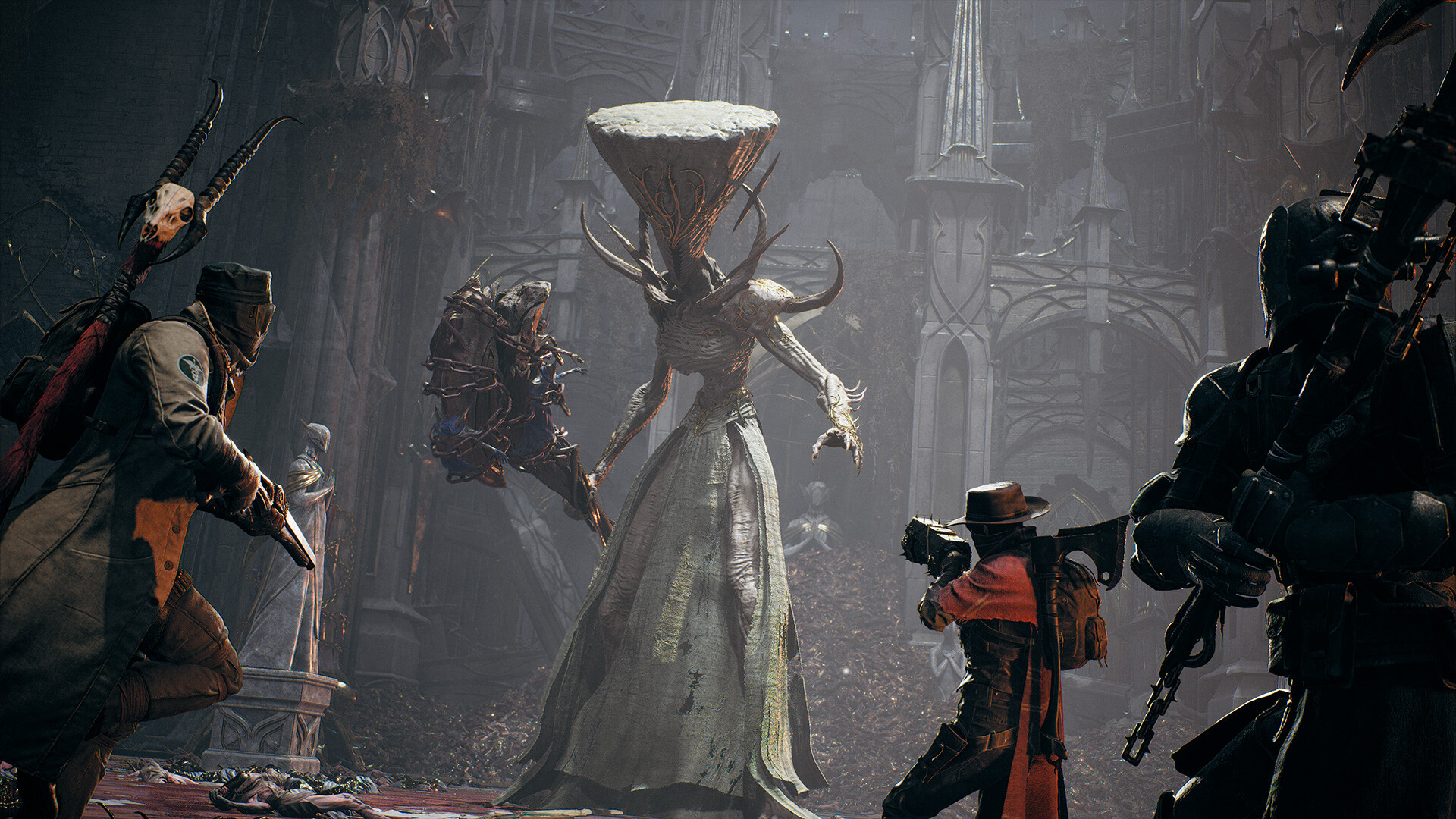
Chorus Review – Look at That C-Beam Glitter
Developed by Deep Silver Fishlabs
Published by Deep Silver
Available on PlayStation 5, PlayStation 4, Xbox Series X and Series S, Xbox One, Google Stadia, Steam
MSRP $39.99
I don’t have a lot of experience playing flying games. I’m not even sure what to call them. Games wherein you fly? My experience goes about as far as Ace Combat 4 on the PlayStation 2. I remember following small indicators on the screen, trying desperately to outmaneuver another plane, going just as fast as me. Planes weren’t meant to fight. I mean, aerial warfare was a mistake. Planes are excellent about ferrying things to be dropped, but it seems like in the short history of aerial warfare, we never seriously considered what to do when pilots inevitably crossed paths with another plane. “Put some machine guns on there or something.” said the top military minds of the early 1900s. Chorus tries to do the unthinkable, and make aerial warfare fun.
I would say that Chorus actually succeeds. You play as Nara, formerly an elder in the mysterious cult, The Circle. The Circle are some bad folks, running roughshod through the galaxy, destroying everything in their path, using mind control and violence to achieve their goals. Nara escapes the cult after she destroys an entire planet. No exact number is given that I noticed, but she does reference killing “billions” of people. That’s probably been the most difficult thing for me: squaring away with a protagonist that did a genocide. A friend of mine constantly brings up that a protagonist doesn’t have to be “the good guy”. I think committing a massive atrocity on that scale kind of disqualifies you from “good guy” status.

Either way, Nara has been on the run from the cult for 7 years when they start encroaching on the quiet life she’s made as a scavenger. She picked a spot far out on the outer reaches of the galaxy, but unfortunately, the Circle isn’t happy with what they have, and head out to get more. It’s a plot you’ve seen before: The lone drifter with a mysterious past and a heart of gold is thrust back into a life they thought they had left behind when circumstances spin out of their control. Just because you’ve seen this plot, doesn’t make it any less fun to watch. Chorus does a lot of neat new things, too.
Chorus is a third person action game with a twist. The trappings are all there. You have a big open map, sidequests, random events, and collectibles. The twist is that all of this is experienced from the cockpit of your ship. Starting out, you’ll be using a standard scavenger ship. It’s not built for combat, but it can do the job in a pinch. When the Circle starts coming in real hot and heavy, you’ll have to find an old friend. When Nara left the Circle all those years ago, she had to put her ship in hiding. That ship, Forsaken – Forsa for short – has been cooling its heels in a sealed cave the entire time Nara has been making a new life. Forsa is no ordinary ship. It possesses advanced AI that allows it to know that it’s been left in a cave for 7 years. After an uneasy reunion with Forsa, Chorus lets off the brakes and opens up.

While Forsa is formidable, the real secret of Nara’s nigh-unstoppable combat proficiency is her rites. Rites are powers derived from the not-quite-understood otherworldly Faceless. When Nara left the Circle, she burned the rites from her body. Faced with a Circle force hellbent on taking the galaxy, she’ll have to go face the memories she thought she had left behind to re-attain her rites. These rites push Chorus from “standard space shooter” to something more…spooky. The first of these rites, the rite of the hunt, allows Nara to teleport directly behind enemy ships. It makes you feel like the coolest person alive to fly past a ship, and with the press of a button be right behind them, ready to rain down hellfire.
When it comes to raining down hellfire, your options are actually fairly standard. You’ll start with a gatling gun, and eventually move up to a laser and missile launcher. These three weapons can be switched between on the fly. As the game goes on, it really becomes a question of preference. Starting out, you’ll need to use lasers for shielded ships, and missiles for heavier ships. But, eventually, the weapons become powerful enough to do the work of their counterparts with ease. If I were to ding Chorus for anything, it would be the lack of variety when it comes to weapons. By mid-game, you’ll be pretty much set for which weapons you want to use. The real focus for combat is your rites.

The story – which I refuse to spoil – does go places for sure. For a game that starts with the destruction of an entire planet, the story still manages to go to some very dark places. It’s very hard to care about a character who killed billions of people, but by pulling into a micro-scale, with smaller stakes, Chorus makes it work. Nara is well-characterized, and her voice actress puts everything into the performance. Nara is the protagonist, and in the context of the game she is doing heroic deeds, but the game, and I, will be quick to remind you that she is not a hero. She can never atone for what she did. She can only hope to live a better life after.
All in all, Chorus hits on two fronts: It is an excellent arcade-style space ship shooter, and a good horror game. I can’t give enough props to the writers for what they’ve done here. For a game that only shows one fully modeled character, it brings a full cast to life through the strategic use of excellent voice actors and talented visual storytelling. You don’t have to be a fan of flying games, to be a fan of Chorus.




